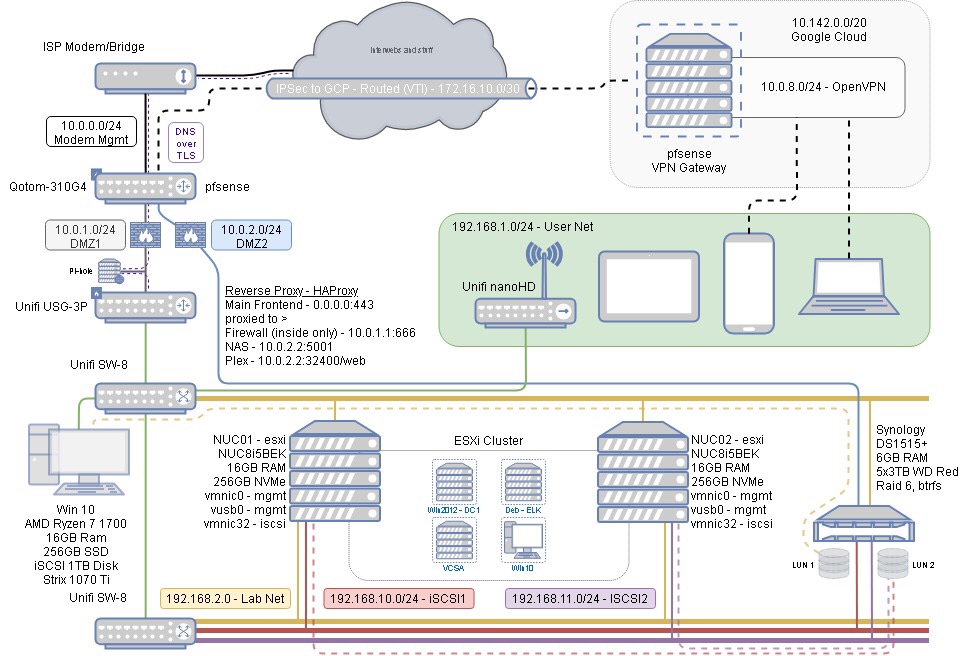Under 100W tiny-homelab - 2-node ESXi Cluster, Synology NFS Storage & PfSense
My small form-factor home data center.

Here it is! The mini-homelab. I live in a small apartment and space is a priority. Organization is also a priority and when I came across this small 11 inch wide mini-rack I pulled the trigger. It holds all of the necessities though! I liked the fact I can give every device a place.
The equipment and setup slowly grew, originally starting with the Qotom box running pfSense. Eventually, I added a Synology DS1515+ which led to Plex, docker, proxies and so much more. After a while I wanted to add some small dedicated servers and that is when the NUCs came about. Finally, it was the Unifi gear, if you have ever browsed the homelab sub-reddit or Stack Overflow you will find that a lot of hobbyist, tech people, home-labbers and the like start to build out their networks with Unifi as it is fairly reliable for a good price.
So, what's in this homelab?
Equipment
- Ubiquiti nanoHD (sitting on top)
- Synology DS1515+
- CPU - Intel Atom
- RAM - 6GB
- HDD - 15TB
- Qotom-Q310G4 running pfSense
- CPU - Intel Celeron
- RAM - 8GB
- SSD - 256GB
- Netgear GS108T Switch (DMZ)
- 8 Ports
- Ubiquiti USG-3P
- 3 Ports
- Unifi Switch8 - 150W
- 8 Ports
- Raspberry Pi 3b+
- Unifi CloudKey
- Unifi Switch8 - 60W
- 8 Ports
- 2 x NUC8i5BEK (ESXi Cluster)
- CPU - i5
- RAM - 32GB
- SSD - 128GB
All of this equipment works great together; the biggest change I would make in this setup is mounting the AP on the ceiling or adding another NUC! However, renting makes mounting the AP a difficult task and another NUC is costly. I will eventually update all of the NUCs in the future.
The 9U rack is approximately 11 inches wide and 19 in tall. I got the rack from a German company and the total cost was about $190 US, including shipping.
- 9U Rack
- Patch Panel
- Shelves
Here's a logical diagram of the network! The idea was to setup a DMZ between pfSense and Unifi. There is a concept called "defense in-depth" which has a goal to make an attacker have to penetrate various barriers before gaining access > https://www.giac.org/paper/gsec/2867/multiple-firewalls-vendors-defense-in-depth-strategy/102293. I must add-in that if not configured properly, and even when the network is configured properly, that maintenance and configuration is less about convience than it is securtiy. Hey... it is a homelab, that's fun right?!
